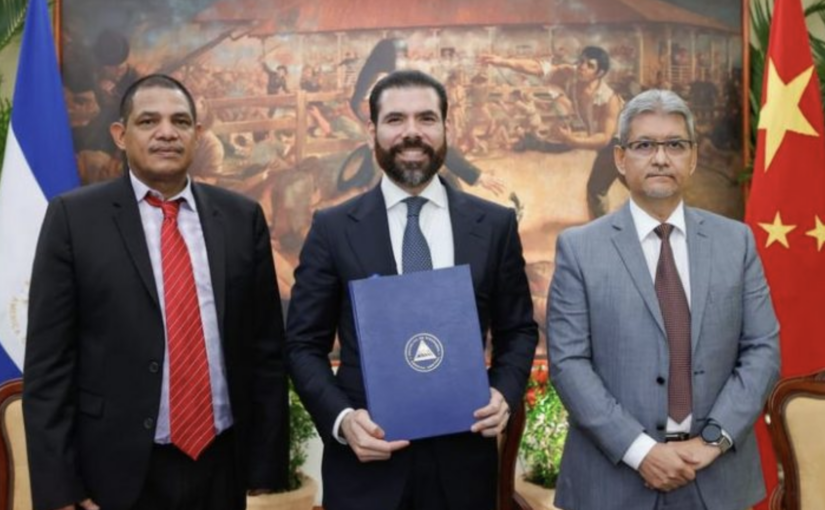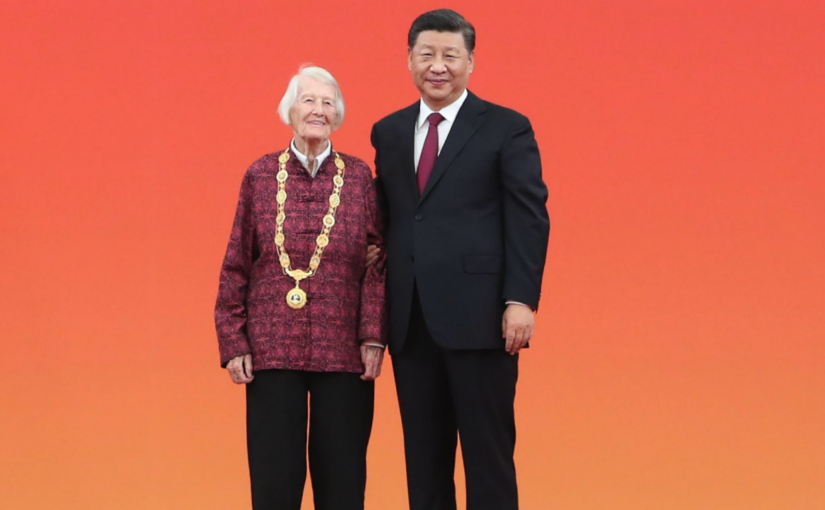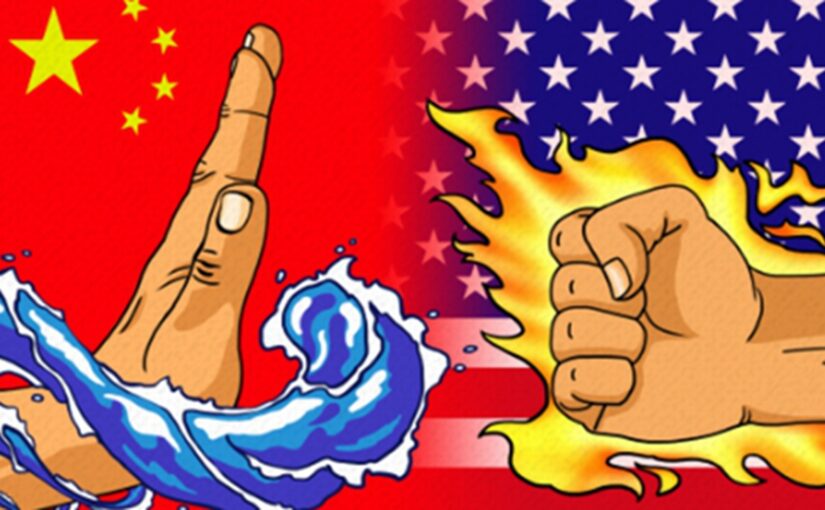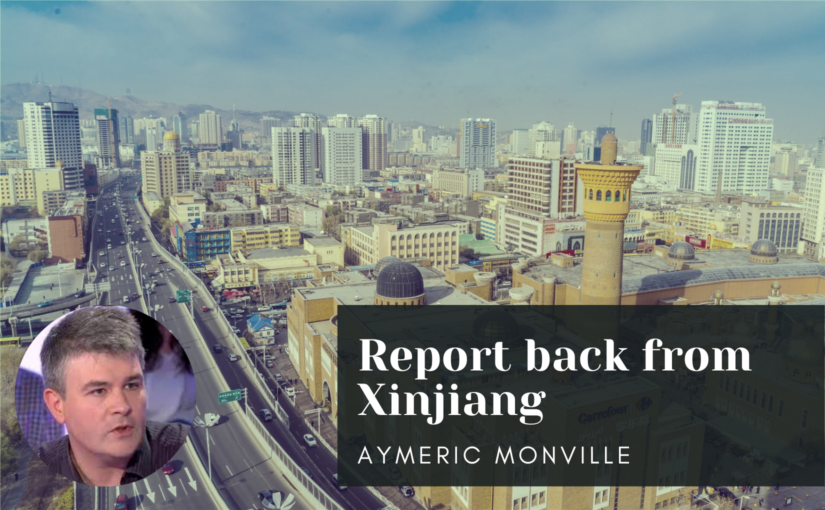China and Nicaragua signed a Free Trade Agreement (FTA) in a virtual ceremony held on August 31st. Nicaragua was represented by Laureano Ortega Murillo, Presidential Advisor for the Promotion of Investments, Trade and International Cooperation, and China by Commerce Minister Wang Wentao.
Laureano Ortega said that it was a historic day, adding that:
“The signing of the Free Trade Agreement between Nicaragua and China will mark a before and after for the Nicaraguan people. It opens the doors to a huge market and will allow us to link up with the companies and businessmen of this sister country.”
“We are convinced that this will generate economic and social benefits for Nicaraguan families, new investments, the creation of more jobs, and the transfer of technologies from China to Nicaragua. It will also provide the opportunity for a greater presence of China in Nicaragua and we reiterate that Nicaragua must be considered by China as a commercial platform for the entire Central American region”.
He pointed out that the relations between the two countries are based on mutual respect and on recognising each other as allies and strategic partners, and this is the only way to explain why they have managed to complete the FTA negotiations in just one year.
This is a significant point as FTA negotiations are generally regarded as one of the most intricate areas of diplomacy and can often take years to negotiate.
Minister Wang Wentao said that the signing of the FTA is the result of the diplomatic relations between China and Nicaragua, which are under the personal attention and leadership of the two presidents, and the mutual trust of the two countries that has been growing through substantial cooperation and has advanced at high speed and at a high level, bringing tangible benefits to the peoples of both countries.
Laureano, at the end of the signing expressed that:
“We reiterate our deep gratitude to the brother government and people of the People’s Republic of China for the signing of the Free Trade Agreement. We promise to carry out the corresponding actions for its entry into force in January 2024. Today in Nicaragua a sun illuminates us and shines brighter in the light of the signing of this agreement that fills us with hope and optimism. We feel strengthened and we are certain that from now on we will see the fruits of this work with the greatest presence of Chinese brothers in our country that will promote economic and social development on the path to prosperity.”
In its report, China Daily noted comments from Dong Jingsheng, deputy director of Peking University’s Latin America Research Centre, who observed that China and Nicaragua are at different phases of development with high economic complementarity in industrial structures and diversity in resources.
He added that the signing of the FTA will foster a more favourable climate for expanding trade and investment partnerships and give both nations’ long-term growth a boost.
China will offer a sizable market for Nicaragua’s high-quality agricultural and aquatic products, and Nicaragua could import goods such as computers, motorcycles and communication equipment, Dong said.
Meanwhile, Chinese enterprises, with their comparative advantages in capital, technology, and managerial experience, could scale up investment and cooperation in sectors including infrastructure, manufacturing, and telecommunications, to increase local employment opportunities, improve public welfare and drive sustainable growth, he added.
The same day, Chinese Foreign Ministry spokesperson Wang Wenbin described the FTA as the most important achievement in the bilateral practical cooperation since the resumption of diplomatic relations.
“Since the two countries resumed diplomatic relations, we have witnessed leapfrog development in bilateral relations, deepening political mutual trust and fruitful practical cooperation. The dividends of resuming diplomatic relations continue to be felt. These have fully proved that the resumption of diplomatic relations between China and Nicaragua is in line with the trend of history and the times and serves the fundamental interests of the two countries and peoples”.
The following articles were originally carried by Kawsachun News, China Daily and Xinhua News Agency.
Nicaragua & China Sign Free Trade Agreement
Kawsachun News, 31 August 2023
In a virtual ceremony, Nicaragua and the People’s Republic of China made history with the signing of the Free Trade Agreement (FTA) that will allow a better and greater commercial and economic exchange between the two nations.
Nicaragua was represented by Laureano Ortega Murillo, Presidential Advisor for the Promotion of Investments, Trade and International Cooperation; the Minister of Finance and Credit, Iván Acosta and the Minister of Public Works, Industry and Commerce, Jesús Bermúdez. The Chinese delegation headed by Mr. Wang Wentao, head of Chinese Commerce.
Laureano Ortega Murillo expressed on behalf of the Government of Reconciliation and National Unity that it was a historic day.
“The signing of the Free Trade Agreement between Nicaragua and China will mark a before and after for the Nicaraguan people. It opens the doors to a huge market and will allow us to link up with the companies and businessmen of this sister country”, indicated Ortega Murillo.
“We are convinced that this will generate economic and social benefits for Nicaraguan families, new investments, the creation of more jobs, the transfer of technologies from China to Nicaragua. It will also provide the opportunity for a greater presence of China in Nicaragua and we reiterate that Nicaragua must be considered by China as a commercial platform for the entire Central American region”, he added.
Continue reading China and Nicaragua sign free trade agreement



